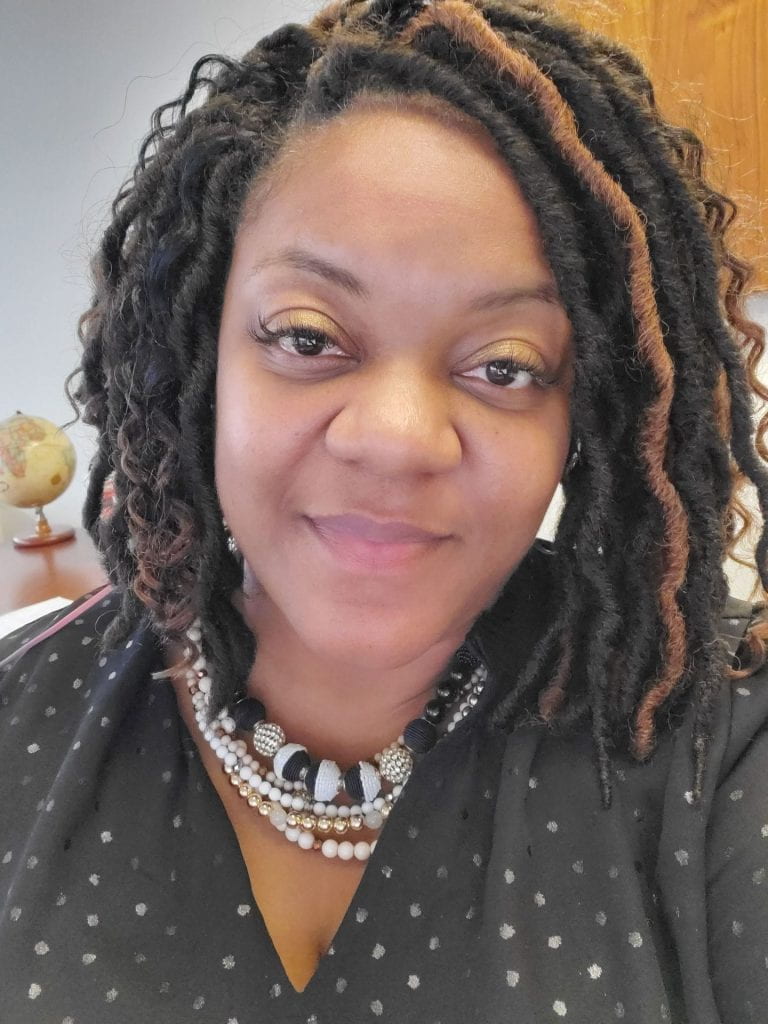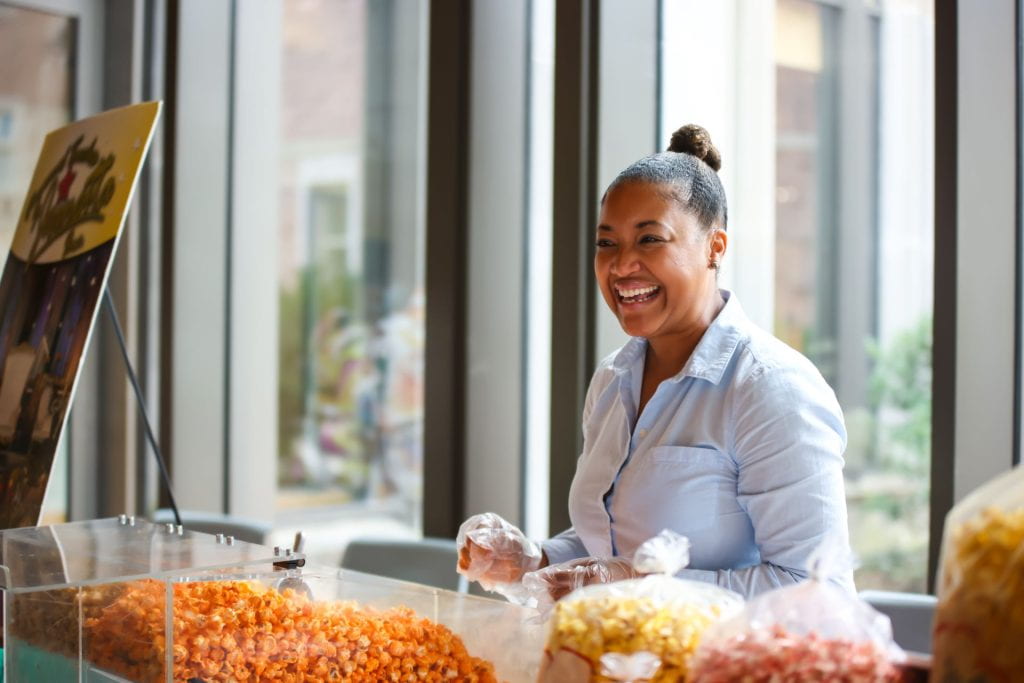Written by Communications Associate, Jarea Fang
No member of our consumerist society is unfamiliar with the concept of a supply chain shortage. A quick Google search will reveal to some that the 2021-2022 global supply chain crisis is an actual Wikipedia title, while others only need to scroll on social media to remember the recent infant formula shortage and the cancellation of the Alaska snow crab season. The high inflation rates of 2022 is keeping everyone on their toes, now more than ever.
According to a recent Harris Poll commissioned by Google Cloud, 82% of shoppers want a brand’s values to align with their own, and three-quarters of shoppers had parted ways with a brand over a conflict in values. As the COVID-19 pandemic drove people to reevaluate their priorities, elevating concepts like community service, equity, and sustainability, many are reconsidering where and how they spend their money.
WashU is no exception. As sustainability actions and activism become widespread on campus, we are also thinking about supplier diversity. The push for securing both local and diverse-owned businesses is both administrative and grassroots, ranging from “in St. Louis, for St. Louis,” Chancellor Martin’s call to foster relationships with communities within our region; to student groups catering from local, minority-owned restaurants for their general body meetings and socials.
What many people don’t know, however, are the people working behind the scenes to make these changes happen. WashU’s Supplier Diversity department, under the Office of Operations and University Services, has been working tirelessly over the years, implementing new programs and transforming our campus. Let us turn our attention to the hard work of Janelle Turner and Tracy Jackson who make up the Supplier Diversity department.
What is Supplier Diversity?
In the most general terms, supplier diversity is a strategy that ensures businesses owned by minoritized individuals or groups are included in the supply chain for the procurement of goods and services. However, supplier diversity is more than just giving equitable opportunities to diverse businesses–it is about creating sustainable communities and increasing economic impact.
“Connecting with diverse-owned businesses benefits our community by building and strengthening the trust of those who are in arms reach of WashU,” says Janelle Turner, Director of Supplier Diversity. “By supporting diverse businesses, we are doing more to support generational wealth, ensure businesses remain sustainable, and support job creation.”
Within WashU, woman-owned, minority-owned, veteran-owned, and Historically Black College or University (HBCU) are some of the classifications we consider diverse-owned business. Supplier Diversity is working on expanding that consideration, most recently adding businesses owned by LGBTQ+ individuals.

The goal, of course, is to diversify our supply chain by building relationships with as many different kinds of local, diverse-owned business as possible. Supplier Diversity will recommend diverse businesses that match requirements, a process made much easier by a website that includes a registration portal for businesses to provide their capabilities. This, in turn, led to the comprehensive diverse businesses directory that they released in early 2022.
“We don’t actually ‘select’ businesses, that is left up to the purchaser,” explains Janelle. “What we try to do is connect and build relationships with diverse businesses, learn their capabilities, provide support that addresses gap areas, and recommend them to the purchasers.”
WashU’s Supplier Diversity department has been around for 25 years, historically focusing on construction, supporting some of the largest capital projects in our campus history. Many innovative strategies were put in place for the East End Transformation, Cancer Center, and Neuroscience Research Building, which ensured diverse-owned contractors received payments on time and have more capacity-building opportunities. It’s only in more recent years that Supplier Diversity started the big transformation to encompass other areas of WashU operations, across all our different campuses.
“The past couple of years have brought a lot of firsts for our department,” says Janelle. “In July 2022, we partnered with Dining Services, Olin Business School, Skandalaris Center, and Washington University Medical Center to host our first Diverse Business Training and Showcase Fair that focused on the event industry, including caterers, event planners, and florists. There was a segment of the event where WashU purchasers were able to taste the food the caterers brought and have face-to-face conversations with almost 20 businesses in attendance. From that event we have seen a lot of vendors develop relationships with various departments.”
Aside from working with local businesses and hosting their own events, Supplier Diversity also shows up to other diverse business events to show their support. They have set up booths at the Center of Diversity and Inclusion (CDI)’s Women Owned Wednesday (WOW) event, Men’s Small Business Market (MSBM), Skandalaris’ Idea Bounce, supported Olin’s CEL program and Diversity Fair, Take Care Health Fair, and more.
“We are working to strengthen partnerships internally in a variety of ways,” adds Janelle, who is looking to engage with schools and departments that have a similar mission at WashU. “We hope to put something in place so that suppliers are not getting lost in the system, but are provided both contractual and relationship building opportunities to establish longevity on WashU’s campus.”
Supplier Diversity & Sustainability
Here is an excerpt from the Office of Sustainability’s Commitment to Racial Equity & Justice:
At the root of today’s intersectional crises is centuries-old structural racism, which manifests as income inequality, healthcare inequality, underfunded schools, mass incarceration and environmental injustice in communities of color. We can’t solve the climate crisis (or any environmental issue) without solving the inequality crisis in this country. We can’t achieve sustainability without achieving justice.
As such, sustainability is not true sustainability if we do not care for our community. In this way, a lot of the goals of the Supplier Diversity and Office of Sustainability align.
“There is a strong connection between environmental outcomes and social outcomes,” says Cassie Hage, assistant director of the Office of Sustainability. When reflecting on the work of the Office of Sustainability and the various Diversity, Equity and Inclusion programs on campus, she explains, “All of us are working on behavior change and cultural change. Between our offices, there is a lot of opportunity to do these things in parallel but also intentionally intersect our work so that our collective goals can be achieved simultaneously.”
Ever since sparks flew at their initial introduction, Cassie and Janelle have been huge proponents of each other’s work. When one of them is in a meeting where the other is not present, they often advocate for each other’s interests.
“I love that even when we’re not physically together in a room, both of our interests can be represented equally,” says Cassie. “This reinforces how much our values align, and our impact is greater when we work in tandem.”
“Supplier Diversity is definitely striving to get to where the Office of Sustainability is today,” echoes Janelle. “The Office of Sustainability’s influence is widespread, visible, and impactful to the university. I’m learning a lot from the way they do things, from website design to policy making.”
When taking on the difficult task of cultural change, the power of default plays a strong yet invisible role. Evidence shows that serving plant-based meals by default increases their selection by an average of 60%! Likewise, by slowly shifting people’s default mindsets to buying sustainably and diversely, consumers can easily start voting with their dollars to support businesses—and people!—that embody core values. It is especially important that WashU, as a large institution with great purchasing power in the region, makes this shift.
“We are slowly working to establish language, processes, and policies that have a focus on both supplier diversity and sustainability,” says Janelle. “Sustainability encompasses more than the environment; we must expand that to neighborhood and community sustainability. It is important that we push a similar agenda across our campus, the businesses that we want a relationship with, and to the public that is both impacted and influenced by the practices we put in place.”
Further Resources
Just a few weeks ago, WashU unveiled the much anticipated Here and Next, the new strategic plan that will guide our university’s vision for the next decade. For the first time in WashU’s history, supplier diversity along with sustainability is called out in the plan. With that, visibility, one of Janelle’s biggest goals for Supplier Diversity, has finally been achieved, but the race is far from over.
“There are many opportunities to educate WashU faculty, staff, and students on these topics,” explains Janelle. “As awareness is increasing, I can feel the momentum building to make sure that diverse suppliers are considered not only for procurement, but also educational opportunities. There is much work to do to meet the goal of building a first in-class supplier diversity program, but we are headed in the right direction.”
In support of Janelle’s mission, here are some resources for you!
